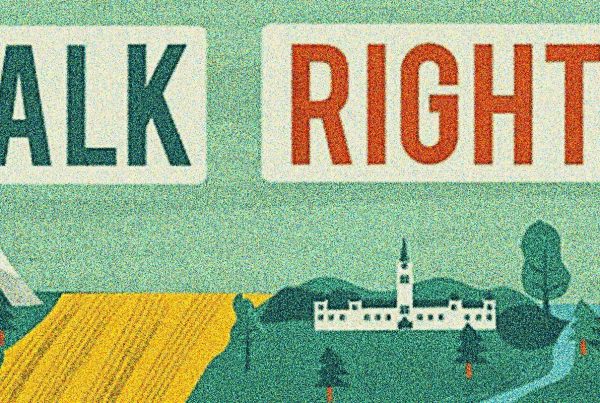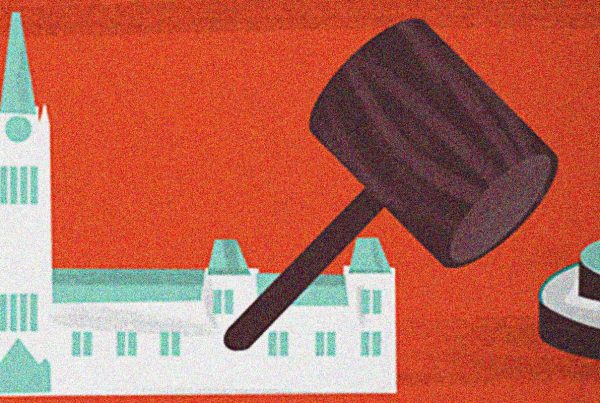Because the Learn section of TalkRights features content produced by CCLA volunteers and interviews with experts in their own words, opinions expressed here do not necessarily represent the CCLA’s own policies or positions. For official publications, key reports, position papers, legal documentation, and up-to-date news about the CCLA’s work check out the In Focus section of our website.
On March 27th 2017, U.S President Donald Trump signed a repeal of the internet privacy regulations that had been adopted under the Obama administration[1]. Those rules required internet service providers (ISPs) to obtain clear permission from their customers before sharing their personal data, including information such as “precise geo-location, financial information, health information, children’s information, social security numbers, web browsing history, etc.“[2]. Now, ISPs can use their customers’ personal data and even sell it to advertising companies without obtaining prior consent[3].
Even though such legislative changes take place south of the border, U.S. legislation on Internet Privacy still has an impact on Canadians, and this is WHY :
1. ” When it comes to the Internet, there is no border”
“When it comes to the Internet, there is no border”, stated famous NSA whistleblower Edward Snowden in a 2013 interview[4]. Indeed, experts have estimated that up to 90 per cent of Canadian Internet traffic is regularly routed through the United States[5]. This is significant because it means that Canadians’ personal information is collected by companies and government agencies that are located south of the border and which are not regulated by domestic privacy laws[6].
2. LEGISLATIVE APPROACHES TO DATA PRIVACY: U.S. AND CANADA COMPARED
Another reason why U.S. legislation on Internet privacy has an impact on Canadians is because of a major difference in the countries’respective legislative approach to data privacy[7]; While in Canada the approach to regulating the use of company-collected personal information works (in most cases) on an «opt-in» basis (i.e. companies must obtain their customers’ authorization PRIOR collecting or using their personal data), the standard set by companies in the U.S. is on an “opt-out” basis (i.e. companies can use and collect their customers’ personal data until the latter request them to stop)[8]. This fundamental difference in the neighbour countries’ legislative approach to data privacy also translates into diverging attitudes towards net neutrality[9].
3. Diverging Attitudes Towards Net Neutrality
The repeal of Internet privacy rules signed by Trump in March 2017 also has an impact on Net Neutrality[10]. “Net Neutrality” is a concept that refers to the principle that all Internet content should be equally accessible and ISPs should not be able to discriminate or charge differently by user, website, platform application, method of communication, etc.[11] Basically, it means that companies should not be able to charge users more for certain features or access to certain websites (i.e. treating the Internet much like cable television service, where ISPs would provide Internet in limited packages and would control and price everything from email use, the ability to stream video, pay bills online, access news websites, etc.) [12].The Internet regulations adopted under the Obama administration back in 2015 (and which were subsequently repealed by Trump last March) aimed to ensure just that[13]. On the other hand, the removal of those regulations by the new Presidency produces the opposite effect on Net Neutrality[14].
4. THE LINK BETWEEN NET NEUTRALITY AND INTERNET PRIVACY
Decreasing Net Neutrality regulations will translate into a decline in Internet Privacy[15]; this is because providing Internet access differently across customers based on what services they paid for requires ISPs to track all aspects of their customers’ internet activity[16]. Consequently, increased monitoring of Internet usage is likely to entail greater encroachment on users’ online privacy[17].
CONCLUSION
While Canadians benefit from greater legislative protection when it comes to personal data, changes in privacy policies occurring south of the border still have an indirect impact on Canadians internet privacy[18]; personal information can still be collected without one’s consent or knowledge as Canadian internet traffic often transits through the United States[19]. At a governmental level, the proximity between Canadian and American agencies also fosters this unauthorized sharing of sensitive data[20].
Footnotes:
[1] Thomson Reuters. 2017. “Trump Signs Repeal of Broadband Internet Privacy Rules”. Published on CBC News official website on April 3rd 2017. Accessed December 23rd 2017 : http://www.cbc.ca/news/world/trump-sign-repeal-broadband-internet-privacy-rules-1.4049282
[2] Held, Matthew. 2017. “How Weakened Privacy Laws in America Affects Canadians”. Published on April 12th 2017 on the official Huffington Post Canada website. Accessed December 23rd 2017 : http://www.huffingtonpost.ca/matthew-held/online-privacy-laws-canada_b_15940254.html
[3] Supra note 2
[4] Tencer, Daniel. 2017. “Canadians’ Internet Data Affected as Trump Cancels Privacy Rules”. Published on March 31st 2017 on the official Huffington Post Canada website. Accessed December 23rd 2017 : http://www.huffingtonpost.ca/2017/01/31/internet-privacy-canada-trump-executive-order_n_14500862.html
[5] Supra note 2
[6] Supra note 2
[7] Hash, Robert. 2017. “Fundamental Differences in Privacy Laws can Undermine Economic Ties and Multinational Corporate Plans : What Companies can do to Prepare for the Next Safe Harbor Moment”. North Carolina Journal of International Law & Commercial Regulation, Vol. 42 Issue 4. Summer 2017. Page 1063.
[8] Supra note 7, page 1063.
[9] Geist, Michael. 2017. “Canada and the U.S. Stand Divided at the Crossroads of Net Neutrality”. Published on November 22nd 2017 on The Globe and Mail official website. Accessed December 23rd 2017 : https://www.theglobeandmail.com/report-on-business/rob-commentary/canada-and-the-us-stand-divided-at-the-crossroads-of-net-neutrality/article37053783/
[10] Supra note 1
[11] Hope, Sean. 2010. “Net Neutrality and Its Impact on Your Privacy”. Published October 2010 on Peoriamagazines.com. Accessed December 23rd 2017 : http://www.peoriamagazines.com/ibi/2010/oct/net-neutrality-and-its-impact-your-privacy
[12] Nusca, Andrew. 2017. “Net Neutrality Explained : What it Means and Why it Matters”. Published November 23rd 2017 on Fortune.com. Accessed December 23rd 2017 : http://fortune.com/2017/11/23/net-neutrality-explained-what-it-means-and-why-it-matters/
[13] Supra note 12
[14] Supra note 9
[15] Supra note 9
[16] Supra note 11
[17] Supra note 11
[18] Supra note 11
[19] Supra note 11
[20] Supra note 2
About the Canadian Civil Liberties Association
The CCLA is an independent, non-profit organization with supporters from across the country. Founded in 1964, the CCLA is a national human rights organization committed to defending the rights, dignity, safety, and freedoms of all people in Canada.
For the Media
For further comments, please contact us at media@ccla.org.




